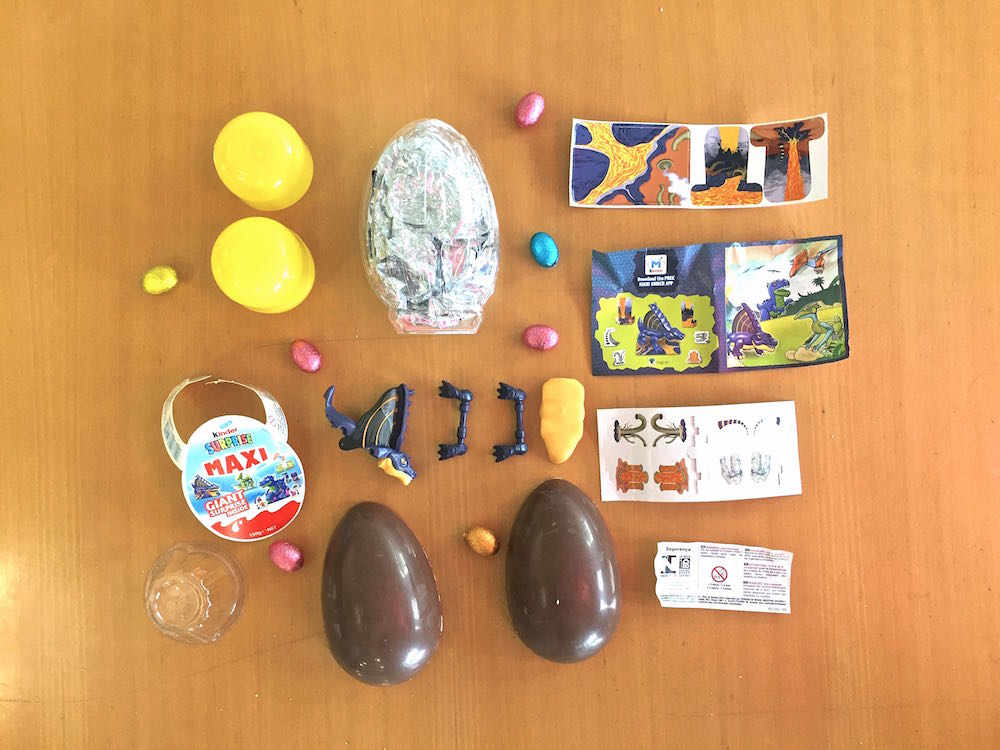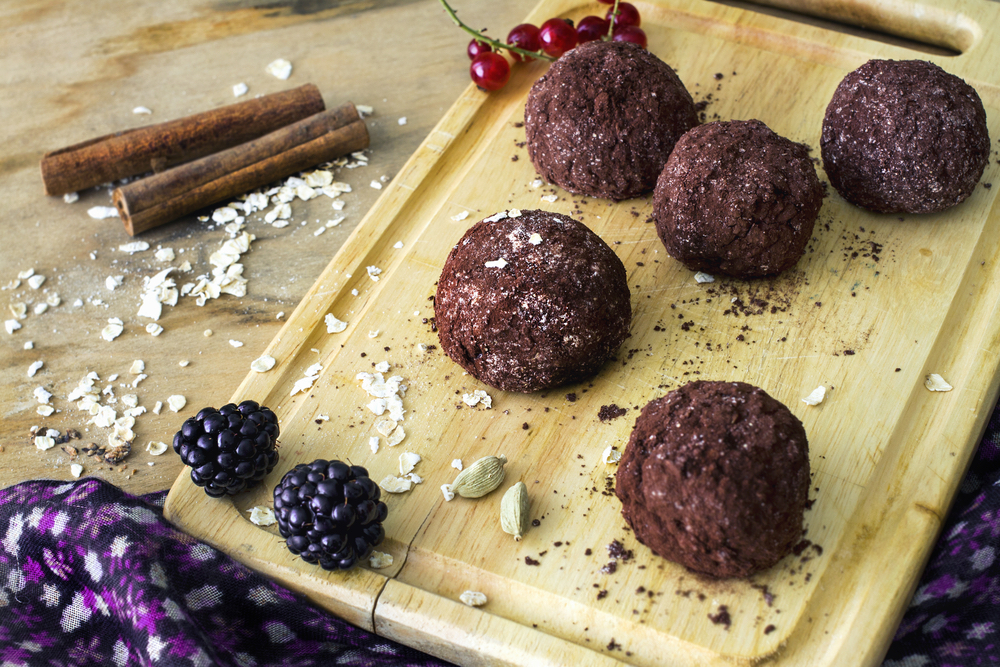Can you cut 1 Tonne of carbon pollution out of your life?
Take the challengeAcknowledging the environmental impact of chocolate is not an easy subject to discuss. If you’re like me, there’s probably not much that could come between you and some indulgent chocolate-y goodness - especially at Easter.
The bad news is that (sorry!) our excessive consumption of chocolate at Easter is hugely damaging to the environment. It's an uncomfortable truth - but a truth nonetheless.
The good news? You can still enjoy Easter and chocolate sustainably, simply by making a few informed choices. Eco-conscious chocoholics rejoice!
Here's why it's time we need to re-think the way we celebrate Easter, and some tips on reducing your own impact:
1. Avoid Egg-cessive packaging:
Did you know that each year, more than 8,000 tonnes of waste is generated just from Easter egg packaging and cards alone?
To demonstrate how truly absurd Easter egg packaging is, we 'unwrapped' (read: awkwardly grappled with multiple layers of foil and plastic) this children's single Easter egg, purchased from a popular grocery chain:

To reiterate, this is the waste from a single Easter egg.
Plastic waste is an issue we talk about a lot, because it's something we can't afford look away from. In 2014, a study found that there are around 5 trillion pieces of plastic floating around in our oceans - which equates to 600 pieces per person on Earth. Plastics harms our fragile oceans through the chemicals contained in them, pollutants that plastic attract once they are in the marine environment, and the damage caused to marine animals when plastic is caught up in their bodies.
Inspired to cut-back on waste this Easter? Read our tips for a waste free Easter holiday, and our top posts on living plastic free.
2. Palm Oil problems: Be in the know.
Palm oil is a vegetable oil sourced from oil palm trees, used as a cheap substitute in packaged foods. Harvesting palm oil has resulted in widespread deforestation, primarily in Indonesia and Malaysia. In turn, this has left elephants, orangutans and rhinos on the brink of extinction.
The situation is bad. It's estimated that 98% of Indonesian forests will be gone in 5 years. As well as driving species extinction, deforestation on this scale is releasing huge amounts of CO2 into the atmosphere, contributing directly to climate change.
Unfortunately, avoiding palm-oil isn't simple (to begin with!). It's estimated to be found in 50% of the products on our supermarket shelves, chocolate among them. Despite being difficult to avoid, it's a battle absolutely worth fighting. As consumers, we have enormous clout - simply by boycotting products which contain palm oil. Decreased revenue is a sure-fire way to make big companies listen-up!
If you're dreaming of chocolate in the lead up to Easter, don't worry - Boycotting palm oil doesn't mean abstaining from chocolate altogether. Keep an eye out for these palm oil free chocolate products:
- Haigh's Chocolate
- Koko Black
- Whittaker's
- Lindt & Sprungli – Lindt Excellence and Lindt Creation chocolate blocks (Note that filled products such as Lindor do contain palm oil)
- Cadbury Dairy Milk chocolate blocks – Dairy Milk, Old Gold, Dream
- Cadbury Green & Black's chocolate blocks (except Butterscotch; Raisin & Hazelnut)
- Aldi Stores: Choceur, Just Organics, Moser-Roth
3. Consider reducing your consumption of animal products:
Yep, chocolate contains dairy, which is an animal product. You've probably heard about the impacts of animal agriculture on the environment before. To recap, here are some shocking stats you need to know:
- Animal agriculture is responsible for 18% of greenhouse gas emissions, more than the combined exhaust from all transportation. Source: FAO, 2005
- Animal agriculture water consumption ranges from 34-76 trillion gallons annually.
(Source: BioScience, 2004) - A farm with 2,500 dairy cows produces the same amount of waste as a city of 411,000 people. (Source: Environmental Protection Agency, 2004)
Read more fast facts on animal agriculture here.
It's important to remember that when it comes to ethical eating, any positive action is better than nothing at all. Some people will feel capable of being absolute about veganism or vegetarianism - but if this isn't you, don't be disheartened. Just do what you can to reduce your own consumption of animal products.
Wanna give vegan chocolate a go? As well as being better for the environment, it's healthier for you too. Check out our Vegan Easter Chocolate Recipe.
Image: Shutterstock

4. Try this little exercise in re-framing:
Often, sustainable solutions are glaring us in the face, so simple we over-look them. In the case of Easter, an easy way of reducing our impact this year could simply be re-thinking it's meaning. Ask yourself: Why do I actually celebrate Easter the way I do?
For many people in the West, we unthinkingly associate Easter with chocolate and the Easter Bunny. It's just the way things are…Right?
In fact, Easter is celebrated in unique ways all over the world. In addition to a diverse range of Christian traditions, there are some quirky ways that some cultures signify the holiday. On the Greek island of Corfu, they throw pots from windows, and in Norway, it's tradition to read crime novels over the break!
The point of this exercise is to demonstrate that there are many ways to celebrate a calendar holiday such as Easter. If you don't like the idea of having to "greenify" a commercial Easter celebration, consider starting afresh. Easter could become a celebration of anything you want - and you can design this celebration to be 100% sustainable.
With some essential know-how in your basket, you're prepped and ready for a planet-friendly Easter break. How eggciting! (had to..).
Hop to it eco-bunnies!

